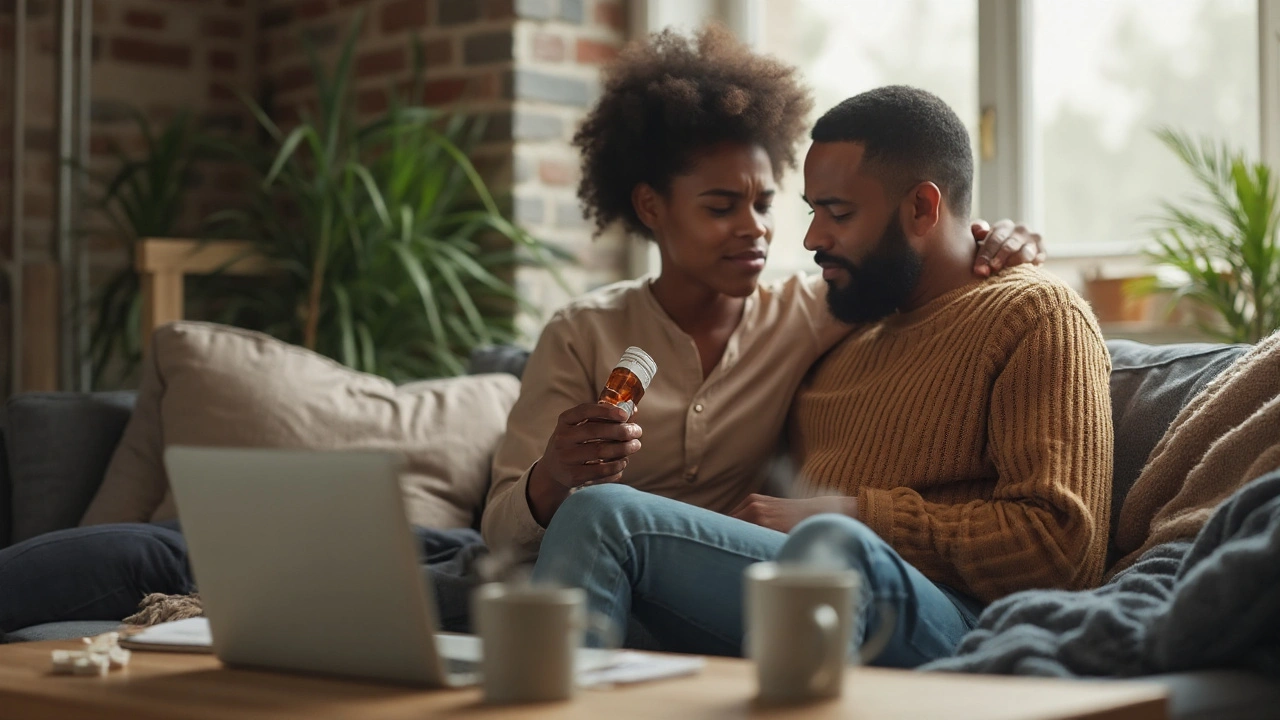Anxiety Medication and Libido: What You Need to Know
If you’re taking pills for anxiety and notice a drop in desire, you’re not alone. Many people experience changes in sex drive when they start an anti‑anxiety prescription. The good news is that the shift isn’t permanent for most drugs, and there are simple tricks to keep things balanced.
Why Some Anxiety Drugs Lower Sex Drive
Most anxiety meds work by tweaking brain chemicals like serotonin or GABA. SSRIs (such as Celexa, Wellbutrin’s cousin) raise serotonin levels to calm nerves, but the same boost can also dull sexual excitement. Benzodiazepines (like Xanax) slow down nerve signals, which may make you feel less aroused. Even beta‑blockers used for panic attacks can lower blood flow, making performance harder.
The effect varies a lot from person to person. Some users never notice a dip, while others feel it right away. Genetics, dosage, and how long you’ve been on the drug all play a role. Knowing which class of medication you’re on helps you predict if libido might be at risk.
How to Protect Your Libido While Treating Anxiety
First, talk openly with your doctor. They can adjust the dose, switch to a different drug, or add a short‑term “bridge” medication that lessens sexual side effects. For example, Wellbutrin (bupropion) is sometimes added because it boosts dopamine without hurting libido.
Timing matters too. Taking an SSRI at night can reduce the impact on daytime desire. Some people find splitting the dose—half in the morning, half before bed—helps keep the mood‑lifting effect while easing sexual side effects.
Lifestyle tweaks work wonders. Regular exercise improves blood flow and releases endorphins that naturally lift both mood and sex drive. A balanced diet with healthy fats, zinc, and vitamins supports hormone production. Reducing alcohol and quitting smoking also removes common libido dampeners.
Stress management outside of medication is key. Practices like deep breathing, short walks, or a quick meditation session can lower anxiety spikes that otherwise sap desire. If you’re on a short‑acting benzodiazepine, try using it only for acute panic moments instead of daily use.
Lastly, keep the conversation going with your partner. Explain what’s happening and experiment with intimacy that isn’t focused solely on intercourse—massage, cuddling, or new fantasies can keep the connection strong while you work through the medication side effects.
Every body reacts differently, so patience is part of the process. Track any changes in a simple notebook: note the drug, dose, time of day, and how you feel sexually. Bring that log to your next doctor visit; concrete data makes it easier to find the right solution.
Bottom line: anxiety meds can affect libido, but they don’t have to ruin your sex life. With a bit of communication, smart dosing, lifestyle support, and professional guidance, you can manage anxiety and keep intimacy alive.
Buspirone and Libido: Effects on Sex Drive and How to Manage Changes
Worried buspirone might hurt your sex life? Learn how it affects desire, arousal, and orgasm, how common issues are, and what to do if your libido changes.






